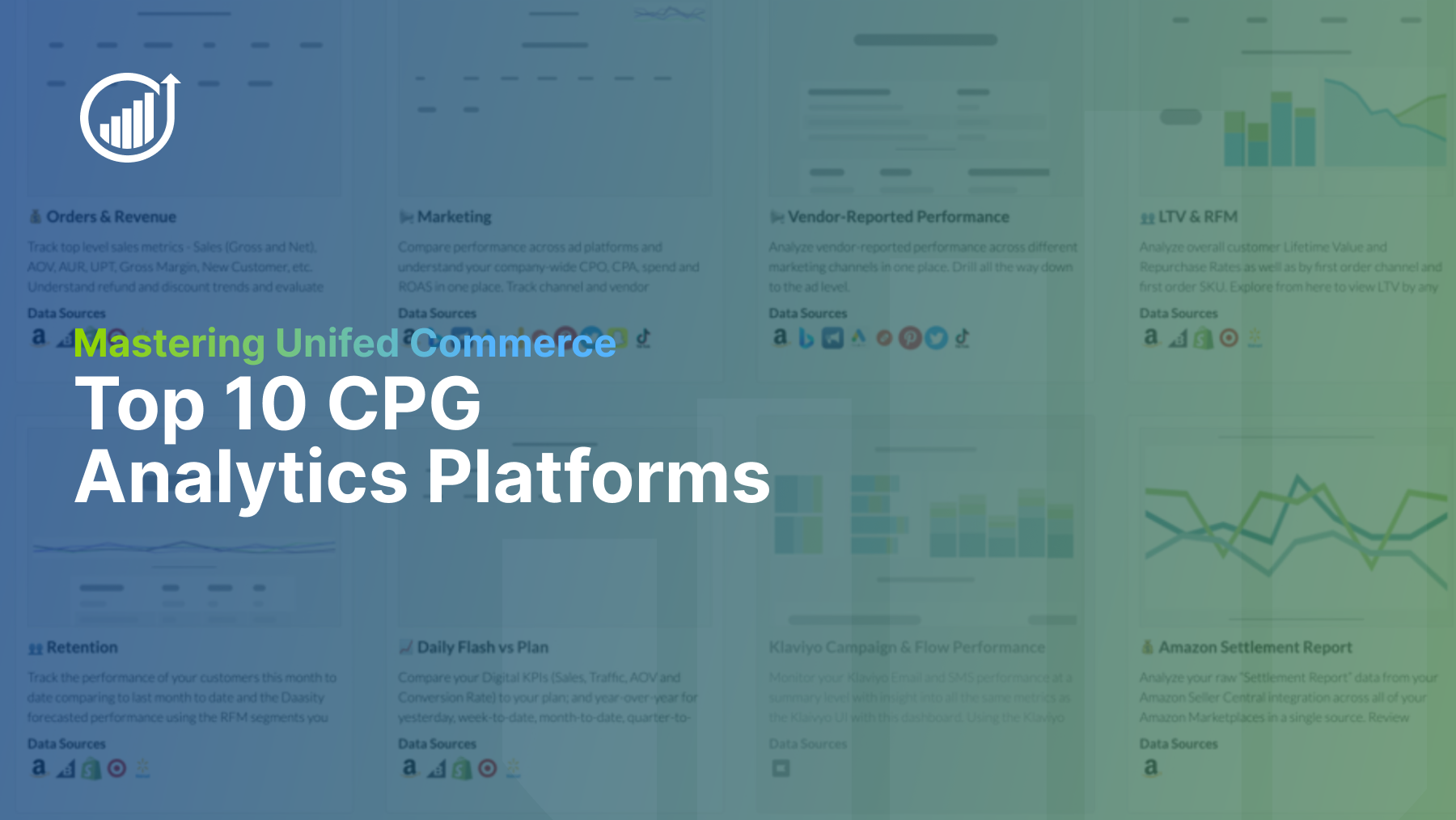Data is key to success for consumer brands. But who should be in charge of managing all this information? For small and medium-sized companies, the answer might surprise you: it's the Chief Financial Officer (CFO).
Learn why CFOs are the perfect fit for leading data strategy, and how they can help their companies make smarter decisions using data.
C-Suite Ownership in Data Strategy is Key
Data strategy needs to be on the C-suite agenda. Why? When the C-suite takes charge of data strategy, it ensures data initiatives align with overall business goals, break down departmental silos, and foster a data-driven culture across the organization.
According to a global study conducted by HFS, the C-suite sets and owns the data objectives in more than 90% of businesses. This high-level ownership is crucial because data touches every aspect of a business.
While the CEO or CIO could potentially lead the charge, we believe the CFO is best positioned to own the data strategy in small to medium businesses.
Why the CFO is the Ideal Data Strategy Owner
When it comes to leading data strategy in small to medium-sized consumer brands, the Chief Financial Officer (CFO) emerges as the ideal candidate. Here are five reasons why:
1. Early Data Leadership
Most brands don't bring on a Chief Information Officer (CIO) or Chief Technology Officer (CTO) until they reach a significant size, typically over $100 million in revenue. However, becoming data-driven is crucial long before hitting this milestone. The CFO can fill this leadership gap, ensuring the company leverages data effectively from an earlier stage.
To be successful, the CFO should be the owner of data until they have a CIO or CTO. This way, data strategy has a dedicated leader from the early stages of the company's growth.
2. Broad Financial Perspective
CFOs have a comprehensive view of the company's financial ecosystem and strategic goals. This top-down view allows them to understand how data can drive value across different departments and initiatives.
3. Cross-Functional Insight
With their role spanning various aspects of the business, CFOs have a cross-functional perspective that's invaluable for data strategy. They can identify how data from different areas can be integrated to provide meaningful insights.
4. P&L Responsibility
CFOs have direct responsibility for the company's profit and loss statement. This "skin in the game" ensures they're deeply invested in using data to drive financial performance and overall business success.
5. Influence and Connections
Their position gives CFOs the right connections and influence to implement data strategies effectively across the organization.
As Frank Friedman, Former CEO and CFO of Deloitte, put it: "CFOs are the logical choice to own analytics and put it to work to serve the organization's needs."
Steps for CFOs to Take Ownership of Data Strategy
As the steward of data strategy, the CFO plays a crucial role in transforming the company into a data-driven organization. This has never been more important - in fact, recent findings from The CFO show 40% of CFOs do not completely trust the accuracy of their organization's data.
To address this challenge and drive data strategy, here are three high-impact actions CFOs can take to get started:
1. Assess and Plan
Begin by conducting a thorough assessment of your current data landscape. Identify what data you have, where it's coming from, and how it's being used. Define clear objectives for what your company wants to achieve with its data strategy.
This could include improving financial forecasting accuracy, enhancing customer insights, or optimizing supply chain operations. Integrate these data considerations into your overall business planning process, ensuring that data initiatives align with broader company goals.
2. Build a Strong Foundation
Implement a unified data management system that integrates data from various sources across the organization. According to The CFO, 27% of CFOs say clunky spreadsheets are holding them back, and 25% complain of outdated, error-prone manual processes.
Consider partnering with a specialized data platform like Daasity, which is designed to help consumer brands centralize and analyze their data effectively. By consolidating your data into a single, reliable source of truth, you can significantly improve data accuracy and trust.
3. Develop and Track Key Performance Indicators (KPIs)
With a solid data foundation in place, focus on developing and monitoring KPIs that align with your business objectives. These metrics should provide actionable insights across all departments, not just finance. Work with department heads to identify the most critical metrics for their areas, ensuring that these KPIs contribute to overall business goals.
Using data and KPIs to regularly track performance helps identify trends, opportunities, and potential issues before they become critical.
Next Steps: Accelerate Your Data-Driven Journey
As CFOs take the lead in data strategy, they have the power to transform their organizations into data-driven powerhouses.
To dive deeper into building a truly data-driven organization, check out our ebook. You’ll find strategies used by industry leaders, real-world success stories, and practical steps to cultivate a data-driven culture. Download the ebook now: Building a Data Driven Organization.






